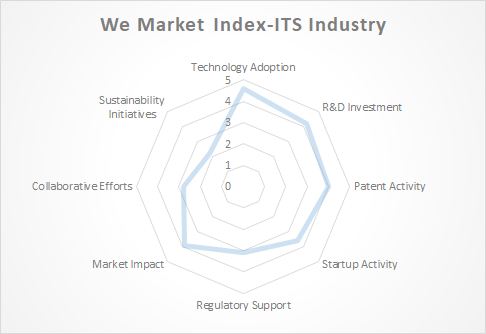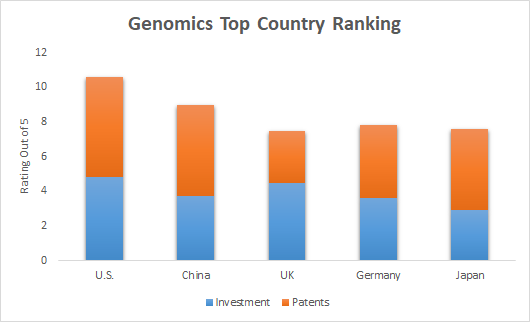Powering the Future: How AI is Revolutionizing the Energy Market
The energy market is undergoing a
profound transformation, and at the heart of this revolution lies Artificial
Intelligence (AI). In this blog post, we will delve into the exciting ways in
which AI is reshaping the energy sector, from enhancing efficiency to promoting
sustainability. Join us on this journey to explore the incredible potential of
AI in the energy market.
The Energy Landscape Today
Before we dive into the impact of
AI, let's take a moment to understand the current energy landscape. The world's
energy demand is on the rise, driven by population growth and
industrialization. This growing demand presents both challenges and
opportunities, especially in the context of climate change and environmental
concerns.
Enter Artificial Intelligence
Artificial Intelligence is not a
panacea, but it is a game-changer. Here are some ways in which AI is making
waves in the energy market:
1. Predictive Maintenance
Energy infrastructure, from power
plants to transmission lines, requires constant maintenance. AI algorithms
analyze vast amounts of data to predict when equipment might fail, enabling
proactive maintenance. This not only reduces downtime but also extends the
lifespan of critical assets.
2. Energy Efficiency
AI-driven systems optimize energy
consumption in real-time. Smart grids, for instance, can balance supply and
demand more efficiently, reducing energy wastage and costs. Industries and
homeowners are also benefiting from AI-powered energy management systems that
help them monitor and reduce their energy consumption.
3. Renewable Energy Integration
The transition to renewable
energy sources like solar and wind is crucial for a sustainable future. AI
plays a pivotal role in forecasting renewable energy generation, ensuring a
smooth integration into the grid. It also helps design more efficient solar
panels and wind turbines.
4. Energy Trading
Energy trading is a complex
process influenced by various factors. AI-powered algorithms analyze market
trends, weather conditions, and supply-demand dynamics to make smarter trading
decisions in real-time. This enhances the efficiency of energy markets and can
even lead to cost savings for consumers.
5. Emissions Reduction
Reducing carbon emissions is a
global imperative. AI assists energy companies in managing their emissions more
effectively. By optimizing operations, monitoring emissions in real-time, and
suggesting improvements, AI contributes to a greener energy industry.
6. Grid Security
The energy grid is a critical
infrastructure vulnerable to cyberattacks. AI provides robust cybersecurity
solutions by continuously monitoring for unusual activities and quickly
responding to threats, ensuring the reliability and security of the energy
supply.
Case Study:
Introduction
In a world where energy
efficiency and sustainability are paramount, the integration of Artificial
Intelligence (AI) into the energy sector is no longer just an option; it's a
necessity. This case study explores the real-world implementation of AI in a
leading energy company, highlighting the transformative impact it had on their
operations, sustainability efforts, and bottom line.
Company: GreenPower Energy
Background:
GreenPower Energy is a mid-sized
energy company specializing in renewable energy solutions. They were facing
challenges related to optimizing their operations, reducing downtime, and
increasing the efficiency of their solar and wind farms.
Challenge:
Optimizing Energy Production:
GreenPower Energy had to maximize energy production from their renewable
assets, including wind turbines and solar panels, while ensuring minimal
downtime and maintenance costs.
Data Overload: The company had an
immense amount of data coming in from sensors, weather forecasts, and
historical records, which was challenging to analyze effectively using
traditional methods.
Sustainability Goals: As a
renewable energy provider, GreenPower Energy was committed to reducing their
carbon footprint and wanted to improve the efficiency of their operations
further.
Solution:
GreenPower Energy partnered with
an AI solutions provider to implement AI-driven systems across their renewable
energy assets. Here's how AI addressed their challenges:
1. Predictive Maintenance:
AI algorithms analyzed data from
sensors on wind turbines and solar panels. By identifying patterns, they
predicted when maintenance was required. This allowed GreenPower Energy to
schedule maintenance proactively, reducing downtime and operational costs
significantly.
2. Energy Forecasting:
AI utilized historical data,
real-time weather information, and machine learning to predict energy
production accurately. This allowed the company to optimize their grid
distribution and sell excess energy during peak demand, increasing revenue.
3. Sustainability Improvements:
AI optimization led to a more
efficient use of energy resources. By reducing energy wastage, GreenPower
Energy not only improved profitability but also reduced their overall
environmental impact, aligning with their sustainability goals.
Results:
Operational Efficiency: The
implementation of AI-driven predictive maintenance reduced downtime by 30%,
resulting in an increase in energy production and profitability.
Energy Production Optimization:
AI forecasting improved the accuracy of energy production predictions by 20%,
leading to better grid management and revenue generation.
Sustainability Gains: GreenPower
Energy achieved a 15% reduction in energy wastage, contributing to their
sustainability efforts and enhancing their reputation as a green energy
provider.
Conclusion:
GreenPower Energy's case study
illustrates the significant impact AI can have on the energy sector. By
harnessing the power of AI for predictive maintenance and energy forecasting,
the company not only improved operational efficiency and profitability but also
made substantial strides toward their sustainability goals.
As the energy industry continues
to evolve, AI will play an increasingly vital role in optimizing operations,
reducing carbon footprints, and ensuring a more sustainable future. This case
study serves as a compelling example of how AI can revolutionize energy
management for companies dedicated to a greener, more efficient energy
landscape.
The Future of AI in Energy
The future of AI in the energy
market is bright. As technology continues to evolve, AI will become even more
sophisticated and capable of handling the complexities of the energy sector.
Expect to see advancements in energy storage, grid management, and renewable
energy integration driven by AI.
In conclusion, AI is not just a buzzword; it's a
transformative force in the energy market. It's helping us generate and consume
energy more efficiently, reduce our environmental footprint, and ensure the
security and reliability of our energy infrastructure. As we move forward, the
synergy between AI and the energy sector promises a cleaner, smarter, and more
sustainable future. Stay tuned for more updates on this exciting journey to
power the future with AI.




